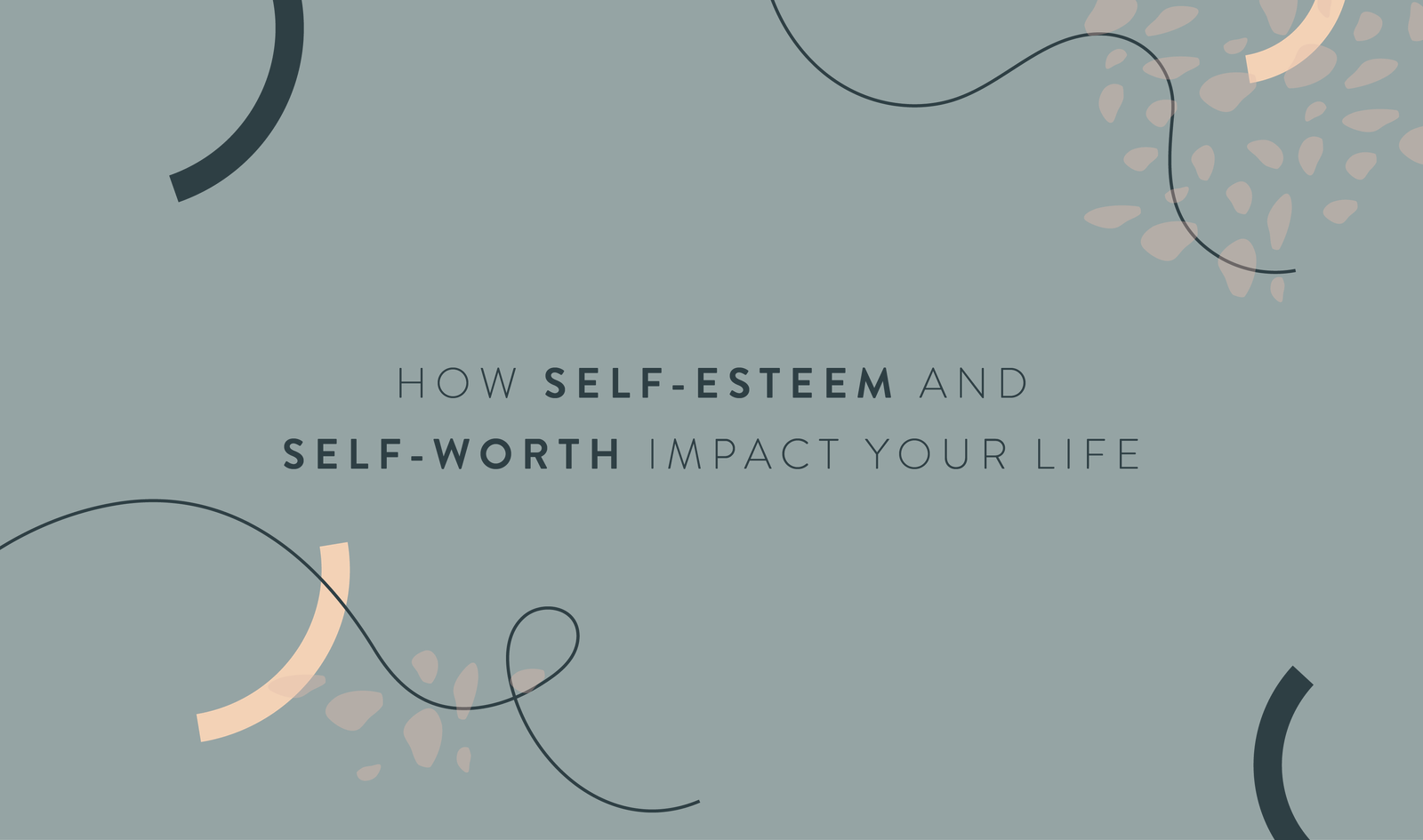
As children, how your parents or caretakers communicated with you, treated you, and expressed their feelings to you was internalized at a young age and is likely influencing how you see yourself today in some capacity. If you felt valued, you are more likely to see yourself in that same way, but if you felt demeaned or not special, your sense of self-worth has likely been negatively influenced by those feelings.
As time passes, your self-esteem develops from your feelings of self-worth. If your self-worth as a young child was low, then it is natural that you would have lower self-esteem as an adult which can develop into fears and insecurities in your life. The following article is intended to help you navigate the terrain of your self-esteem and self-worth. If you are looking for additional support, please feel free to book a session with me here.
A HEALTHY SELF-ESTEEM OCCURS WHEN WHAT WE THINK, FEEL, AND BELIEVE ABOUT OURSELVES IS HONEST AND REALISTIC.
What is Self-Esteem?
Self-esteem is basically an assumption you make about yourself based on the way you see yourself, whether that is in a positive or negative light. Self-esteem does not depend on your long list of accomplishments.
A healthy self-esteem typically reflects how comfortable you are with who you are as a person. This does not mean you’re perfect, but rather that you are happy with yourself. A healthy self-esteem occurs when what we think, feel, and believe about ourselves is honest and realistic.
Fragile self-esteem can develop into two extreme forms: you can either think too highly or too low of yourself. Too high a self-esteem can be misleading as you can over exaggerate your positive traits to yourself and fail to acknowledge your faults and weaknesses. This can also result in being self-centered, where the only opinion that matters to you is your own regardless of the truth. Someone in this case is probably in a state of deceived self-perception. People with too high of a self-esteem tend to be defensive and self-promoting externally, due to feeling fragile and insecure on the inside.
On the other hand, people that have very low self-esteem will likely experience the following in some form or another: they will see themselves negatively, continuously be critical of themselves, underestimate their own abilities, and doubt their ability to be successful. Low self-esteem can result in negative self-talk such as telling yourself that you are boring, stupid, lazy, unconsidered, or selfish even when you know that is not the case. People in this state will also find it difficult to accept compliments and regardless of accomplishment or success that is achieved, there may still be a feeling of not being good enough.
Low self-esteem can develop from traumatic childhood life experiences, such as experiencing all types of abuse, including neglect, sexual, emotional, and verbal abuse. Other traumatic influences can include prolonged separation from parents, being ill for a long time, and more. Low self-esteem is deeply rooted in feeling a lack of control over our own environment and life. If left untreated, it is common for people with very low self-esteem to develop depression and poor mental health.

Cultural Differences with Self-Esteem
The value of self-esteem is different from one culture to another. In the West it is based on achievement, in the East it is on ‘worthiness’ in being acceptable as a ‘good’ member in the family, community, and so on.
In the West, your success can negate your negative behaviors. Whereas in the East there is a higher value placed on one’s loyalty and socially acceptable behavior within the group, and one’s achievement and success is secondary. However, the more the East is becoming westernized the more Western values are being adopted.
If your measure of success is solely based on achievement and external factors, that can develop into the fear of failure and affect your sense of security and the foundation of your self-esteem. If the sense of worthiness and self-esteem is dependent on acceptance or rejection from others than it relies heavily on the opinion of people around you, neither of which you can control.
Thus in both Eastern and Western cultures, self-esteem is driven from outside factors other than oneself. In both cases this constrains our ability to believe in ourselves and trust our own decision making skills, which as a result can stunt emotional growth and prevent us from taking advantage of the opportunities that come our way.
What is Self-Worth?
Self-worth is feeling and believing that you are valuable as a person regardless of your behavior or traits. Having a strong self-worth means that even during times when you’re feeling negative about yourself, you know that you are worthy. This allows you to deeply value your humanity and to appreciate your values and goodness, and knowing that you can make a positive impact for yourself and for the people around you. Self-worth empowers you to own your potential.
BE OPEN TO THE POSSIBILITY OF FAILURE, DON’T LET THE FEAR OF FAILURE HINDER OR INFLUENCE YOUR DECISIONS AND YOUR FUTURE.
Developing Your Self-Esteem & Self-Worth
Developing a healthy sense of self-esteem and self-worth takes time and practice.
Be open to the possibility of failure, don’t let the fear of failure hinder or influence your decisions and your future. Yes, failure hurts and is an uncomfortable experience, but it does give you the opportunity to not only learn from the experience but to also begin to rely on your own capabilities rather than letting outside factors that you cannot control, such as what people will say, your money, or your status, determine your destiny.
Failure is an opportunity to learn and grow. Treat yourself with respect and dignity, look after your physical, emotional, and mental health. Create an environment that helps you develop meaningful relationships, tolerate risk, as well as accept and forgive yourself. It make take time, but as you build a strong foundation of self-esteem and self-worth, you will experience joy in your life and how you see or feel about yourself will not be easily influenced by external factors or negative situations.
Interested in learning more tools to improve your self-esteem or self-worth? Contact me if you are looking for more support or guidance. I am looking forward to supporting you!
